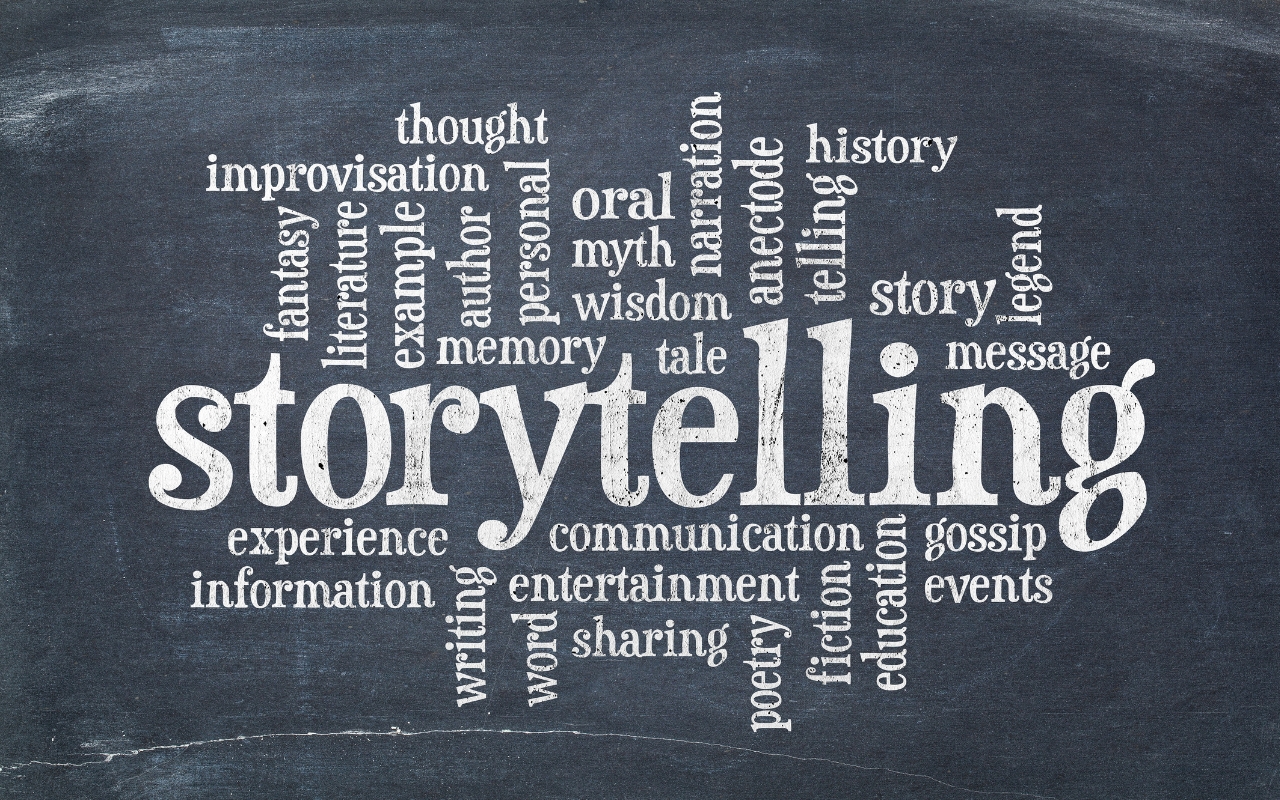In an era where mental health challenges are increasingly prevalent, the power of storytelling has emerged as a valuable tool for healing and self-discovery. Whether through personal narratives, fiction, or therapeutic writing, storytelling can offer a unique form of therapy that fosters emotional well-being and mental resilience. This article delves into how storytelling can benefit mental health, drawing on expert insights and real-life experiences to highlight its transformative potential.
Storytelling is not just about weaving tales; it is an intrinsic part of human nature. From ancient times, humans have used stories to convey experiences, impart wisdom, and create a sense of community. This age-old practice holds significant therapeutic value today, particularly in mental health.
The Therapeutic Benefits of Storytelling
Storytelling offers multiple therapeutic advantages, allowing individuals to process emotions, gain perspective, and connect. One of the primary benefits is its ability to help people make sense of their experiences. By narrating events and emotions, individuals can organize their thoughts and feelings, leading to greater self-awareness and understanding. According to Headspace, storytelling can reduce anxiety, as feeling heard and validated plays a crucial role in emotional healing.
Moreover, storytelling can serve as a catharsis, helping individuals release pent-up emotions. Writing or speaking about traumatic or distressing experiences can alleviate the burden of negative feelings. This process, known as expressive writing, has been shown to facilitate emotional healing and improve mental health outcomes. James Pennebaker, Ph.D., a renowned psychologist, emphasizes the importance of writing in constructing a narrative to contextualize trauma and organize thoughts, which can prevent the brain from replaying non-constructive patterns (Medicinal Media).
Bridging Isolation Through Shared Stories
A sense of isolation often accompanies mental health struggles. Storytelling can bridge this gap by fostering connections and building a sense of community. When individuals share their stories, they create opportunities for empathy and understanding. Readers or listeners who resonate with these narratives may experience a sense of solidarity, knowing they are not alone in their struggles.
Personal stories can also challenge the stigma surrounding mental health issues. By openly discussing their experiences, individuals contribute to a broader dialogue that normalizes conversations about mental health. This openness can inspire others to seek help and share their own stories, reducing the isolation many feel.
Platforms like Wattpad have provided valuable spaces for individuals to publish and share their mental health journeys. Writers on these platforms often receive supportive feedback and messages from readers who find solace and inspiration in their stories. This reciprocal exchange reinforces the community aspect of storytelling and underscores its therapeutic value.
Storytelling as a Tool for Self-Empowerment
Writing and storytelling also empower individuals by giving them control over their narratives. In therapeutic settings, this approach is known as narrative therapy. It encourages individuals to re-author their life stories, focusing on their strengths and abilities rather than their problems. This shift in perspective can significantly impact one's self-esteem and agency.
Narrative therapy operates on the premise that individuals are not passive recipients of their circumstances but active agents capable of shaping their destinies. By reframing their stories, individuals can recognize their skills and resilience, which can be instrumental in overcoming challenges. As highlighted by IDONTMIND, participants in writing programs often experience enhanced self-esteem and greater control over their lives.
Furthermore, narrative writing allows individuals to explore different facets of their identity and experiences. It provides a safe space to experiment with new perspectives and possibilities, fostering personal growth and self-discovery. This exploration can benefit those dealing with identity-related issues or undergoing significant life transitions.
Writing Programs and Workshops
Structured writing programs and workshops have gained popularity as practical means of harnessing the power of storytelling for mental health. These programs offer guided exercises, peer feedback, and professional support to help participants navigate their writing journeys. They aim to create a supportive environment where individuals can express themselves freely and constructively.
One such initiative is the Write On! program, which has demonstrated significant benefits for its participants. As reported by IDONTMIND, the program was studied by the University of Hartford Center for Social Research, which found that participants experienced improved self-esteem, reduced self-stigma, and a greater sense of belonging. These outcomes underscore the therapeutic potential of structured writing programs.
In addition to formal programs, many community centers and mental health organizations offer writing workshops that cater to diverse needs. These workshops often focus on genres, such as memoir writing, fiction, or poetry, allowing participants to choose the format that resonates most with them. The flexibility and inclusiveness of these workshops make them accessible to individuals from various backgrounds and with different levels of writing experience.
Overcoming Challenges in Storytelling
Despite the numerous benefits, storytelling and narrative writing can also present challenges, particularly for those new to the practice. Common obstacles include fear of judgment, difficulty in articulating emotions, and concerns about writing skills.
One effective way to overcome these challenges is to start with small, manageable tasks. Writing prompts and guided exercises can help individuals ease the process without feeling overwhelmed. It is important to remember that the therapeutic value of storytelling lies not in the quality of the writing but in the act of expression itself. As Remi Kyek emphasizes in IDONTMIND, the difference between a writer and a non-writer is simply that writers write. This mindset encourages individuals to focus on the process rather than the product.
Creating a supportive environment is equally crucial. Whether participating in a formal writing program or sharing stories with a trusted friend, having a non-judgmental audience can make a significant difference. Setting clear boundaries and ensuring that the storyteller and the listener are comfortable with the content being shared is essential to maintaining a positive and safe storytelling experience.
The Role of Fiction in Mental Health
While personal narratives and therapeutic writing are powerful tools, fiction also holds substantial value in supporting mental health. Fictional stories allow individuals to explore complex emotions and scenarios in a controlled and imaginative manner. By engaging with fictional characters and plots, readers and writers can gain insights into their experiences and develop empathy for others.
For many, writing fiction offers a form of escapism that can be therapeutic in its own right. It allows one to step away from real-life challenges and immerse oneself in a different world. This temporary detachment can offer a reprieve from stress and anxiety, allowing individuals to return to their reality with a refreshed perspective.
As noted by a contributor on Wattpad, writing fiction can also serve as a means of rewriting one’s life story. By crafting characters who overcome adversity or find happiness, writers can envision positive outcomes for themselves. This imaginative exercise can be empowering and instill a sense of hope and possibility.
Encouraging a Culture of Storytelling
To fully realize storytelling's potential for improving mental health, it is vital to encourage a culture that values and supports this practice. This involves creating spaces where individuals feel safe sharing their stories and receiving constructive feedback. Educational institutions, community centers, and mental health organizations can play pivotal roles in fostering such environments.
Incorporating storytelling into mental health education and advocacy efforts can amplify its impact. By sharing success stories and highlighting the therapeutic benefits of storytelling, advocates can inspire more individuals to embrace this practice. Promoting storytelling through social media, public talks, and literature can further normalize and destigmatize the discussion of mental health issues.
Moreover, training mental health professionals in narrative therapy and other storytelling techniques can enhance their ability to support clients. By integrating storytelling into therapeutic practices, professionals can offer more diverse and personalized approaches to mental health care.
Conclusion
Harnessing the power of storytelling to improve mental health is a promising and accessible approach that can benefit individuals from all walks of life. Whether through personal narratives, therapeutic writing, fiction, or structured programs, storytelling provides a valuable outlet for expression, connection, and healing. By recognizing and supporting the therapeutic potential of storytelling, we can create a more inclusive and empathetic society where mental health is openly discussed and embraced.
Numerous resources and platforms are available to guide and support those looking to explore the power of storytelling. From writing programs like Write On! to online communities such as Wattpad, the opportunities are vast and varied. Embracing storytelling as a tool for mental health can lead to profound personal growth and a greater understanding of oneself and others.










